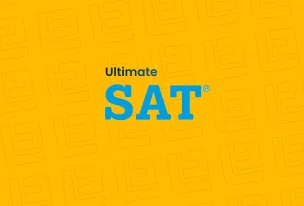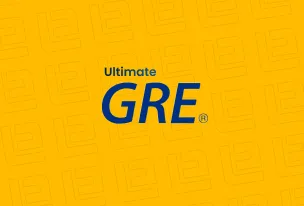Business schools rely on GMAT scores as one of the key components in their holistic evaluation of candidates’ suitability for admission. This standardized test, in conjunction with various other application materials such as academic transcripts, letters of recommendation, and personal essays, plays a pivotal role in the comprehensive assessment process.
The GMAT score holds a significant weight in the admissions process because it provides an objective measure of a candidate’s cognitive abilities. It serves as a standardized yardstick, allowing admissions committees to compare candidates on a level playing field. The GMAT plays a significant role in the application process.
In the highly competitive landscape of business school admissions, a higher GMAT score can be a potent asset. Business schools often have a minimum GMAT score requirement, and exceeding this threshold can demonstrate a candidate’s ability to meet or exceed the academic rigor of the program. Moreover, a stellar GMAT score can distinguish a candidate in a crowded pool of applicants, making them a more attractive prospect to admissions committees.
The GMAT assesses various skills vital for success in business education and management roles.
- The Analytical Writing Assessment (AWA) gauges a candidate’s ability to analyze arguments critically and communicate effectively—a skill of utmost importance in the world of business where clear and persuasive communication is paramount.
- Integrated Reasoning (IR) evaluates a candidate’s aptitude for deciphering complex data presented in various formats, a skill essential for making informed decisions in modern business environments. This section assesses a candidate’s ability to integrate data from multiple sources, a skill highly relevant in today’s data-driven business landscape.
- Quantitative Reasoning measures a candidate’s mathematical proficiency, including their grasp of algebra, geometry, and data analysis. This section is indispensable for business students as quantitative skills are fundamental to financial analysis, market research, and various other aspects of business strategy.
- Reading comprehension, critical thinking, and sentence-correction skills are assessed in the Verbal Reasoning component of the exam. In the business world, effective verbal communication and the ability to critically assess information are invaluable. The Verbal Reasoning section of the GMAT helps business schools identify candidates who possess these crucial skills.
Business Program:
In essence, the GMAT score serves as an indicator of a candidate’s readiness for the academic rigor of a business program. Business schools seek students who not only have a strong academic foundation but also possess the critical thinking, problem-solving, and communication skills necessary to excel in a dynamic and competitive business environment.
However, it’s essential to remember that the GMAT score is just one piece of the admissions puzzle. Admissions committees adopt a holistic approach, considering all aspects of a candidate’s application. Academic transcripts provide insight into a candidate’s past performance and their ability to handle challenging coursework, while letters of recommendation offer endorsements from individuals who can speak to the candidate’s character, work ethic, and potential for success in a business program.
Read also: GMAT Test Mastery: Timing, Format, and Success Strategies
Personal essays allow candidates to showcase their unique qualities, experiences, and aspirations. These essays provide an opportunity for applicants to convey how they will contribute to the school’s community and enrich the educational experience for their peers. Therefore, while a high GMAT score is undoubtedly beneficial, it should complement a well-rounded and compelling application.
The GMAT score is a crucial factor in business school admissions. It is a standardized metric that helps admissions committees assess a candidate’s cognitive abilities and readiness for the academic demands of a business program. A strong GMAT score can undoubtedly enhance a candidate’s chances of being admitted to their desired program. However, it is just one piece of the admissions puzzle, and a holistic approach that considers all aspects of a candidate’s application is essential for a comprehensive evaluation. Therefore, aspiring business school students should strive for excellence in all aspects of their application, from the GMAT score to transcripts, letters of recommendation, and personal essays, to maximize their chances of admission to the program of their choice.
GMAT Registration

To enroll for the GMAT, the Graduate Management Admission Test, you can initiate the registration process through the official GMAT website, which can be accessed at www.mba.com. Registering for the GMAT is a straightforward online procedure that allows you to conveniently choose your desired test date and location, settle the exam fee, and successfully complete your registration. As a vital part of the registration process, you should ensure that you upload a valid photo ID.
The initial step in the GMAT registration process is visiting the official GMAT website. Upon arrival, you’ll have the option to create a personal account. This account serves as your gateway to managing your GMAT registration and accessing crucial test-related information. Once your account is set up, you can begin the registration process.
During the registration process, you will be prompted to select your preferred test date. This is a crucial decision, as it should align with your preparedness and availability. It’s advisable to choose a date that gives you ample time to prepare adequately for the GMAT, ensuring you can perform at your best on test day.
Here is a list of the best universities and business schools in the world for those who wish to pursue an MBA program.
Test Center Location:
Additionally, you will be required to specify your chosen test center location. It’s important to consider a location that is convenient for you to reach on the day of the exam, as well as one that offers an available slot on your selected test date.
The next step involves payment of the GMAT exam fee. Be sure to review the fee structure on the official GMAT website, as costs may vary depending on your location and other factors. Payment can typically be made securely online through various payment methods.
Lastly, but certainly not least, ensure that you upload a valid photo ID as part of your registration. This identification document is a vital component of the registration process, as it verifies your identity on test day.
GMAT registration is a user-friendly, web-based process that enables you to create an account, select a suitable test date and location, pay the exam fee, and submit a valid photo ID. By following these steps diligently through the official GMAT website, you’ll be well on your way to registering for the GMAT and taking a significant stride toward your academic and professional goals.
Read also: Improve Your GMAT Score with Practice Questions Designed by Experts
GMAT Exam Dates for 2023
If you’re planning to take the GMAT in 2023, you’ll be pleased to know that this exam is typically available throughout the year, offering flexibility for test-takers to choose a date that aligns with their schedules and preparation timelines. However, it’s important to note that specific exam dates and availability may vary depending on your location and the test center you prefer.
To find the most up-to-date and accurate information regarding GMAT exam dates for 2023, as well as the availability of slots at your chosen test center, it is recommended that you visit the official GMAT website. The Graduate Management Admission Council (GMAC), the organization that administers the GMAT, regularly updates their website with the latest test-related information, including test dates, registration details, and test center locations.
By visiting the official GMAT website, you can access a comprehensive and reliable source of information that will guide you through the registration process and provide details on available exam dates in your region. This ensures that you have the most current and relevant information at your fingertips, allowing you to make informed decisions about when and where to take the GMAT.
Read this to get direct practice with examples of each section to improve your analytical and quantitative skills.
What to Prepare for Registering for the GMAT Exam?
To prepare for registering for the GMAT exam, you’ll need to gather the necessary information and documents to ensure a smooth registration process. Here is a list of the things you need to get ready:
Your Personal Information:
Obtain your personal information, such as your complete name, birthdate, contact data (phone number and email), and mailing address. Make sure the information you give is accurate and up to date.
Valid Photo ID:
You will need to provide a valid government-issued photo identification document. This could be a passport, driver’s license, national ID card, or any other government-issued ID that meets GMAC’s requirements. Ensure that the name on your ID matches the name you’ll use for the GMAT registration.
Preferred Test Date and Location:
Decide on your preferred GMAT test date and location. Visit the official GMAT website to check the available test dates and test center locations. Keep in mind that it’s a good idea to have some flexibility in your date choices, as popular test centers may fill up quickly.
Payment Information:
Prepare a valid payment method (credit card or debit card) to cover the GMAT exam fee. Be aware of the current exam fee, which may vary by region, and make sure your payment method has sufficient funds.
GMAT Account:
If you don’t already have one, create an account on the official GMAT website (www.mba.com). You’ll use this account to complete your registration, receive updates, and access your GMAT scores later.
Additional Information (Optional):
Depending on your situation, you may need to provide additional information during the registration process. For example, if you require testing accommodations due to a disability, you’ll need to follow the specific process outlined by GMAC.
Preparation:
While not directly related to registration, it’s essential to prepare adequately for the GMAT exam. Consider using official GMAT prep materials and resources, as well as any third-party study materials if desired.
Once you have all the necessary information and documents ready, you can visit the official GMAT website, log in to your GMAT account, and follow the registration steps provided. Double-check all the information you’ve entered before submitting your registration to ensure accuracy.
Read also: Understanding of GMAT Scores for Admission to Overseas Universities
Preparing in advance and ensuring you have all the required information at your fingertips will streamline the GMAT registration process and help you secure your preferred test date and location.
In the competitive landscape of graduate business education, the GMAT plays a pivotal role in helping candidates stand out and gain admission to their desired programs. Registering for the GMAT is indeed the first significant step on your journey to business school success. We’ve explored the essential aspects of GMAT registration in this article, from the registration process itself to key tips for a smooth experience. Remember, your GMAT score can be a powerful asset on your path to a rewarding career in business, so take the time to prepare thoroughly and approach the registration process with confidence.
Find the right GMAT course here to achieve success in your GMAT exam.
FAQs
How do I register for the GMAT?
To register for the GMAT, visit the official GMAT website (www.mba
.com) and create an account. Then, follow the instructions to schedule your test date, select a test center, and pay the registration fee.
What are the costs associated with GMAT registration?
The GMAT registration fee varies by region but typically ranges from $250 to $275. Additional fees may apply for rescheduling, sending score reports, or other services.
Can I reschedule or cancel my GMAT test date?
Yes, you can reschedule or cancel your GMAT test date, but fees may apply depending on when you make the changes. Be sure to review the GMAT rescheduling and cancellation policies on the official website for details.
When should I register for the GMAT?
It’s recommended to register for the GMAT well in advance of your desired test date, as popular test centers and dates can fill up quickly. Aim to register at least 2-3 months before your intended test date.
What should I bring to the test center on exam day?
You must bring a valid passport (the only acceptable form of ID), your GMAT appointment confirmation, and any other required documentation specified by the test center. Personal items, including electronic devices and study materials, are not allowed in the testing room.
How should I prepare for the GMAT after registration?
After registration, invest time in comprehensive GMAT preparation. Consider enrolling in a prep course, using official GMAT study materials, and taking practice tests to gauge your progress. A successful study strategy must be well-organized.
What if I encounter technical issues during registration or on test day?
In case of technical issues during registration or on test day, contact GMAC (Graduate Management Admission Council) for assistance. They can help resolve any problems and ensure a smooth testing experience.
How long will my GMAT result be good?
GMAT results are valid for five years after the test date. When creating your timeline for applying to business schools, keep this expiration date in mind.
If I’m unhappy with my first GMAT score, may I retake it?
You can take the GMAT again, but there are some restrictions. Between test attempts, you must wait at least 16 days, and you may only take the test once every rolling 12-month period. Business schools usually evaluate your application based on your greatest GMAT score.
Do business schools accept only the GMAT?
While many business schools accept the GMAT, some institutions also accept the GRE (Graduate Record Examination) as an alternative. Check the admissions requirements of your desired schools to determine which test(s) they accept.
Navigating the GMAT registration process and preparing for the exam can be a challenging but rewarding experience. Remember that thorough preparation, a clear understanding of the registration process, and careful planning are key to achieving your desired GMAT score and gaining admission to your dream business school.
Well, now you know what you need to prepare. Let’s start your GMAT preparation to achieve a score that meets the requirements of your target universities. There are many online practice tests available on the internet, but still feeling confused? Join us now.





